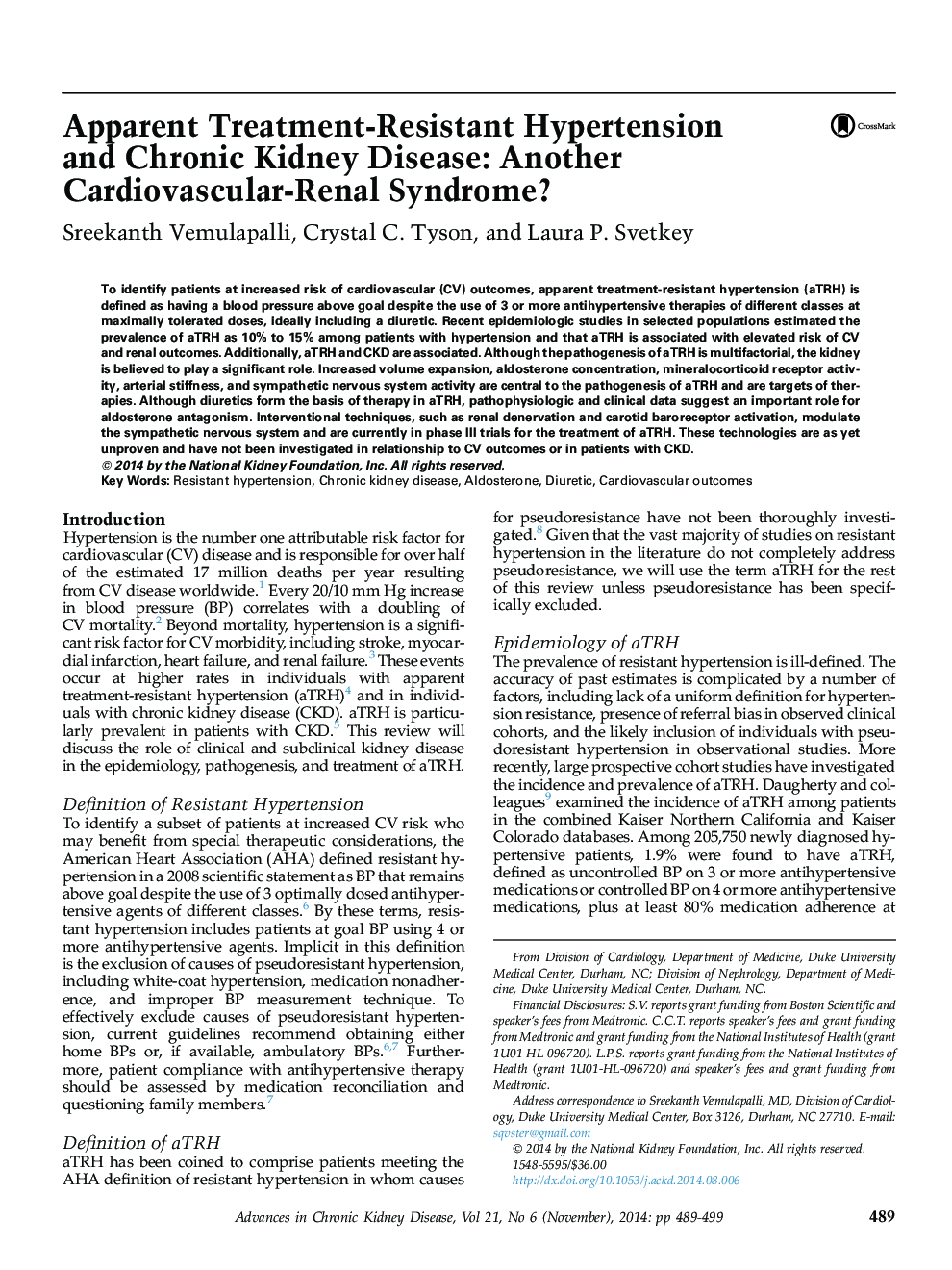| Article ID | Journal | Published Year | Pages | File Type |
|---|---|---|---|---|
| 3846368 | Advances in Chronic Kidney Disease | 2014 | 11 Pages |
Abstract
To identify patients at increased risk of cardiovascular (CV) outcomes, apparent treatment-resistant hypertension (aTRH) is defined as having a blood pressure above goal despite the use of 3 or more antihypertensive therapies of different classes at maximally tolerated doses, ideally including a diuretic. Recent epidemiologic studies in selected populations estimated the prevalence of aTRH as 10% to 15% among patients with hypertension and that aTRH is associated with elevated risk of CV and renal outcomes. Additionally, aTRH and CKD are associated. Although the pathogenesis of aTRH is multifactorial, the kidney is believed to play a significant role. Increased volume expansion, aldosterone concentration, mineralocorticoid receptor activity, arterial stiffness, and sympathetic nervous system activity are central to the pathogenesis of aTRH and are targets of therapies. Although diuretics form the basis of therapy in aTRH, pathophysiologic and clinical data suggest an important role for aldosterone antagonism. Interventional techniques, such as renal denervation and carotid baroreceptor activation, modulate the sympathetic nervous system and are currently in phase III trials for the treatment of aTRH. These technologies are as yet unproven and have not been investigated in relationship to CV outcomes or in patients with CKD.
Related Topics
Health Sciences
Medicine and Dentistry
Nephrology
Authors
Sreekanth Vemulapalli, Crystal C. Tyson, Laura P. Svetkey,
